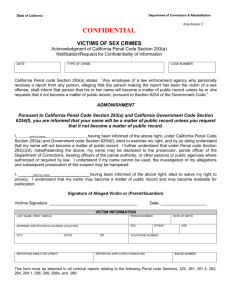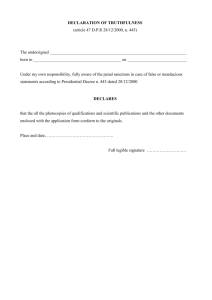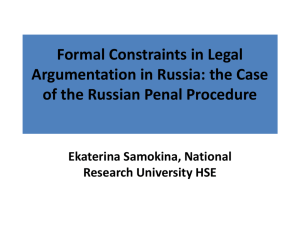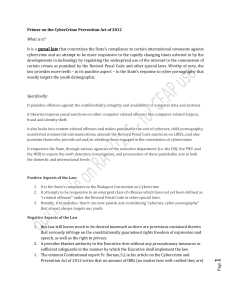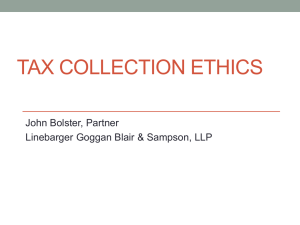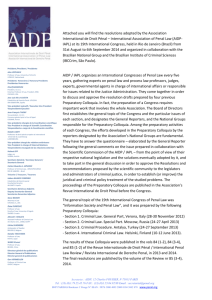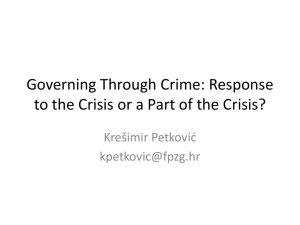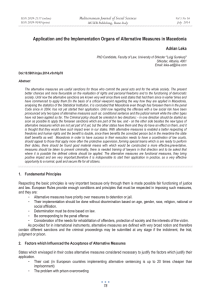The Plurality of criminal law acts in the Republic of Estonia from
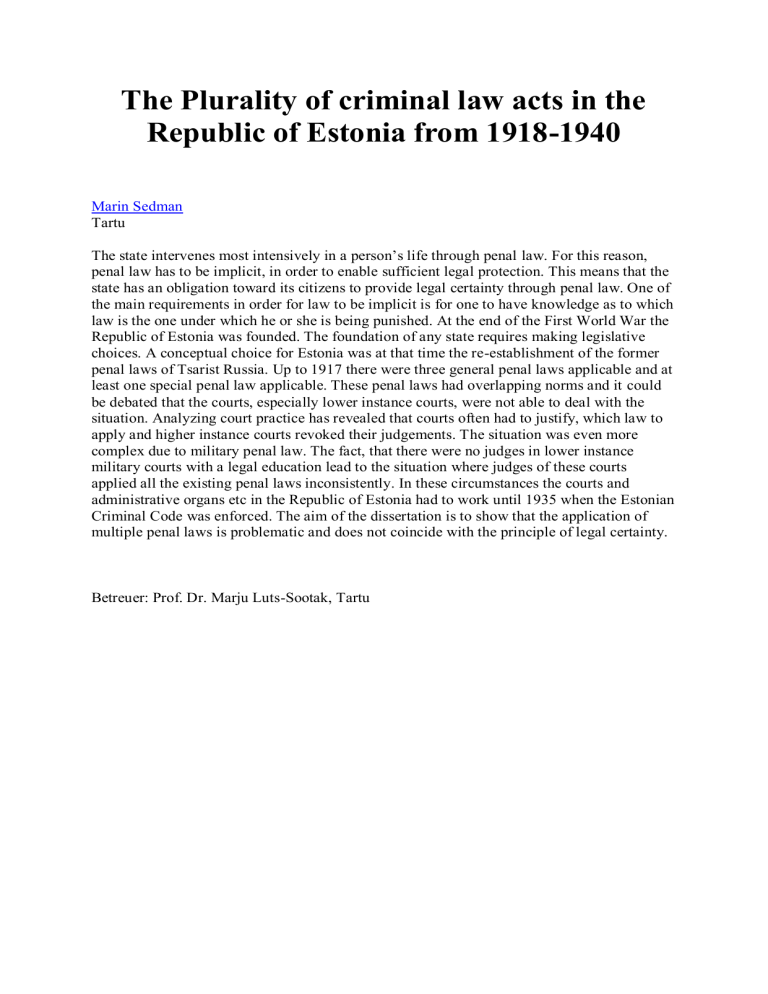
The Plurality of criminal law acts in the
Republic of Estonia from 1918-1940
Marin Sedman
Tartu
The state intervenes most intensively in a person’s life through penal law. For this reason, penal law has to be implicit, in order to enable sufficient legal protection. This means that the state has an obligation toward its citizens to provide legal certainty through penal law. One of the main requirements in order for law to be implicit is for one to have knowledge as to which law is the one under which he or she is being punished. At the end of the First World War the
Republic of Estonia was founded. The foundation of any state requires making legislative choices. A conceptual choice for Estonia was at that time the re-establishment of the former penal laws of Tsarist Russia. Up to 1917 there were three general penal laws applicable and at least one special penal law applicable. These penal laws had overlapping norms and it could be debated that the courts, especially lower instance courts, were not able to deal with the situation. Analyzing court practice has revealed that courts often had to justify, which law to apply and higher instance courts revoked their judgements. The situation was even more complex due to military penal law. The fact, that there were no judges in lower instance military courts with a legal education lead to the situation where judges of these courts applied all the existing penal laws inconsistently. In these circumstances the courts and administrative organs etc in the Republic of Estonia had to work until 1935 when the Estonian
Criminal Code was enforced. The aim of the dissertation is to show that the application of multiple penal laws is problematic and does not coincide with the principle of legal certainty.
Betreuer: Prof. Dr. Marju Luts-Sootak, Tartu
